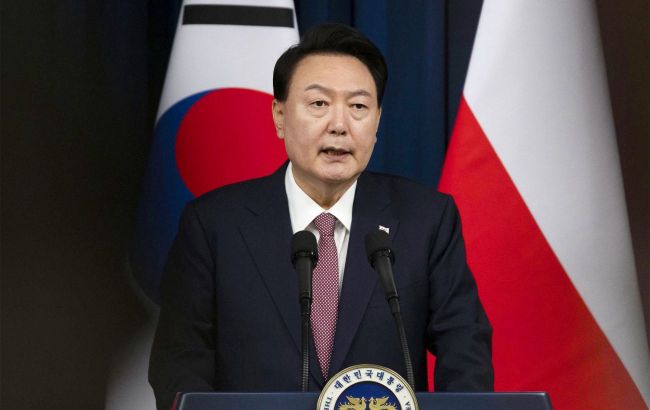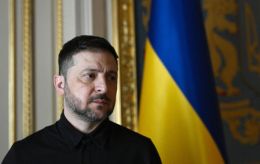South Korea to hold early presidential elections in June
 Photo: suspended South Korean President Yoon Suk Yeol (Getty Images)
Photo: suspended South Korean President Yoon Suk Yeol (Getty Images)
South Korea is planning to hold an early presidential election in June, following the removal of Yoon Suk Yeol, the South Korean news agency Yonhap reports.
The South Korean government has decided to hold the presidential election on June 3 of this year after the former President Yoon Suk Yeol was removed from office by the Constitutional Court.
This date is expected to be confirmed at a Cabinet meeting later this week, according to a senior official on Monday.
According to Yonhap's source, Acting President Han Duck-soo is expected to approve the election schedule at Tuesday’s government meeting.
The election must take place within 60 days after the Constitutional Court removed Yoon from office last Friday over his failed attempt to declare martial law.
There has already been a precedent for early elections, when on May 9, 2017, a presidential election was held after the impeachment of former President Park Geun-hye.
The National Election Commission will begin early registration of candidates immediately after the Constitutional Court's ruling.
Candidates must register by May 11, and the official campaign period may begin on May 12.
The law also requires a public servant running for President to resign at least 30 days before an election, making May 4 the deadline for their run.
Case of South Korean President
In December 2024, the President of South Korea, Yoon Suk Yeol, declared martial law in the country.
He claimed the move was necessary to curb the dominance of opposition parties in parliament, particularly the Democratic Party, which he accused of showing sympathy toward North Korea, blocking government operations, and harming national interests.
The government and parliament refused to support martial law and forced Yoon to revoke it. The martial law regime lasted about six hours but sparked a political crisis in the country.
Following the incident, Yoon was criminally charged and suspended from office as President.
In mid-December, the opposition-controlled National Assembly voted to impeach him. He was accused of violating the Constitution and laws by declaring martial law on December 3, deploying troops to the National Assembly to prevent lawmakers from voting on the decree, and issuing arrest warrants for politicians.
In addition to the impeachment process, Yoon is also facing criminal charges for inciting insurrection over his proposal to implement martial law - a charge that carries a maximum penalty of life imprisonment or the death penalty.

